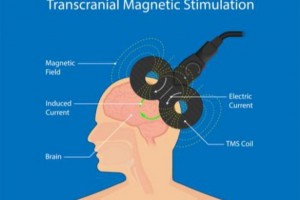Pregnant women with epilepsy have more depression, anxiety symptoms
Pregnant women with epilepsy have more symptoms of depression and anxiety during pregnancy and postpartum than pregnant women who do not have epilepsy or women with epilepsy who are not pregnant, according to a study published in the August 17, 2022, online issue of Neurology.
The study involved 331 pregnant women with epilepsy, 102 pregnant women who did not have epilepsy and 102 women with epilepsy who were not pregnant. The pregnant women had study visits during each trimester, around the time of delivery and every three months through nine months postpartum. The women who were not pregnant had visits at comparable time points. At every visit, the women were screened for depression, anxiety and other psychiatric disorders.
There was no difference among the groups in episodes of major depression. However, pregnant women with epilepsy were more likely to have symptoms of depression during pregnancy than the women with epilepsy who were not pregnant had during the same time period. Postpartum, they were more likely to have symptoms of depression than both of the other groups.
Anxiety symptoms were higher in the pregnant women with epilepsy during pregnancy than in either of the other groups. Postpartum, they were higher than in the pregnant women who did not have epilepsy.
While the study did not find a higher rate of major depression among pregnant women with epilepsy, researchers did identify factors associated with major depression. Women who had more than one seizure in the past three months, were taking more than one epilepsy drug, had an unplanned pregnancy or had a history of mood disorders were more likely to have a major depression episode during pregnancy or postpartum.
"Depression is often underrecognized in people with epilepsy, yet we know that effective management of depression can improve people's quality of life and their overall outcomes for epilepsy treatment, so women with epilepsy should be monitored closely during pregnancy and evaluated when they are thinking about planning a pregnancy," Meador said.
He noted that while the study was large, not enough women were studied to allow researchers to fully evaluate the impact of individual epilepsy medications on symptoms of depression and anxiety. Another limitation is that women may not recall symptoms that occurred in between study visits.





Related Posts